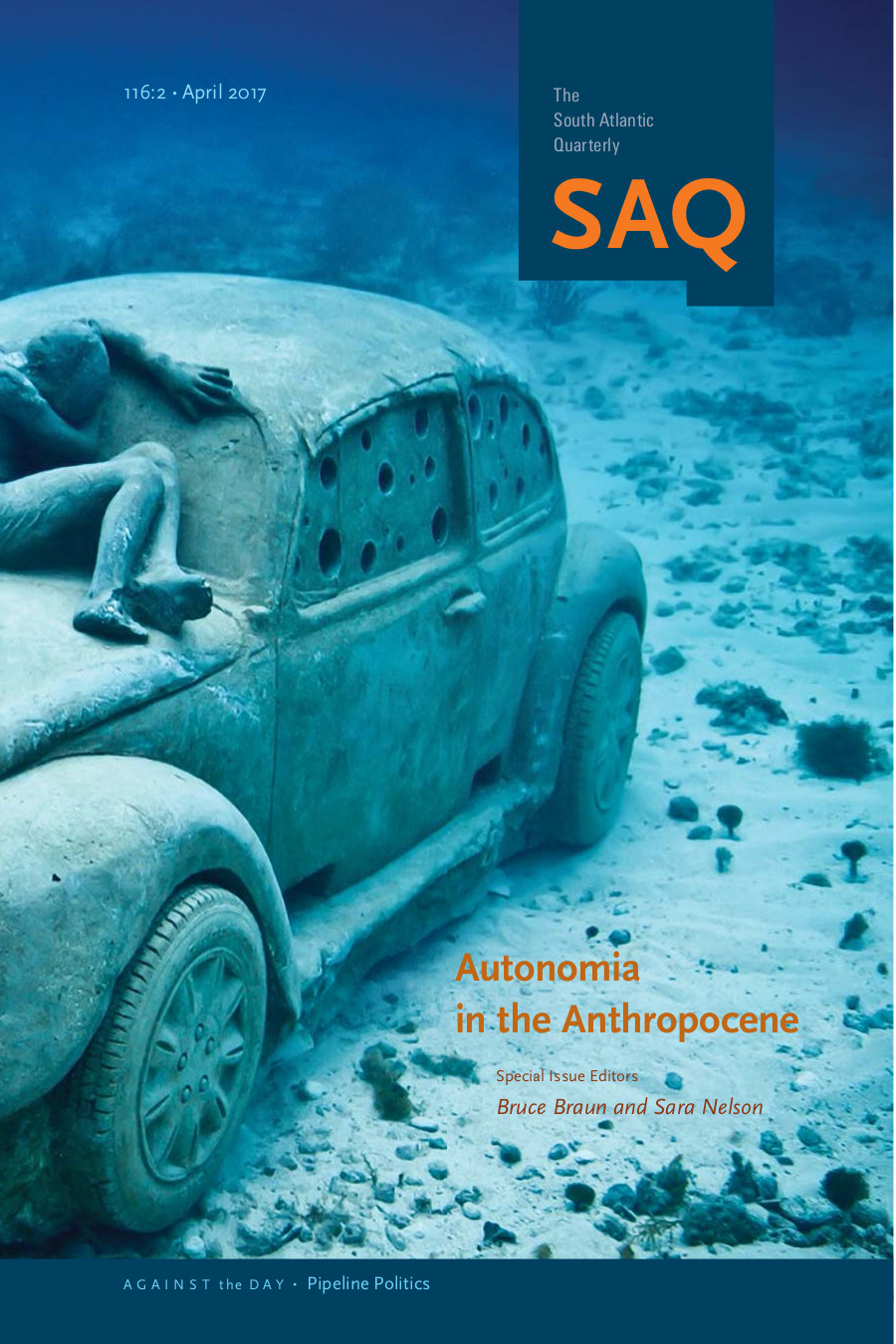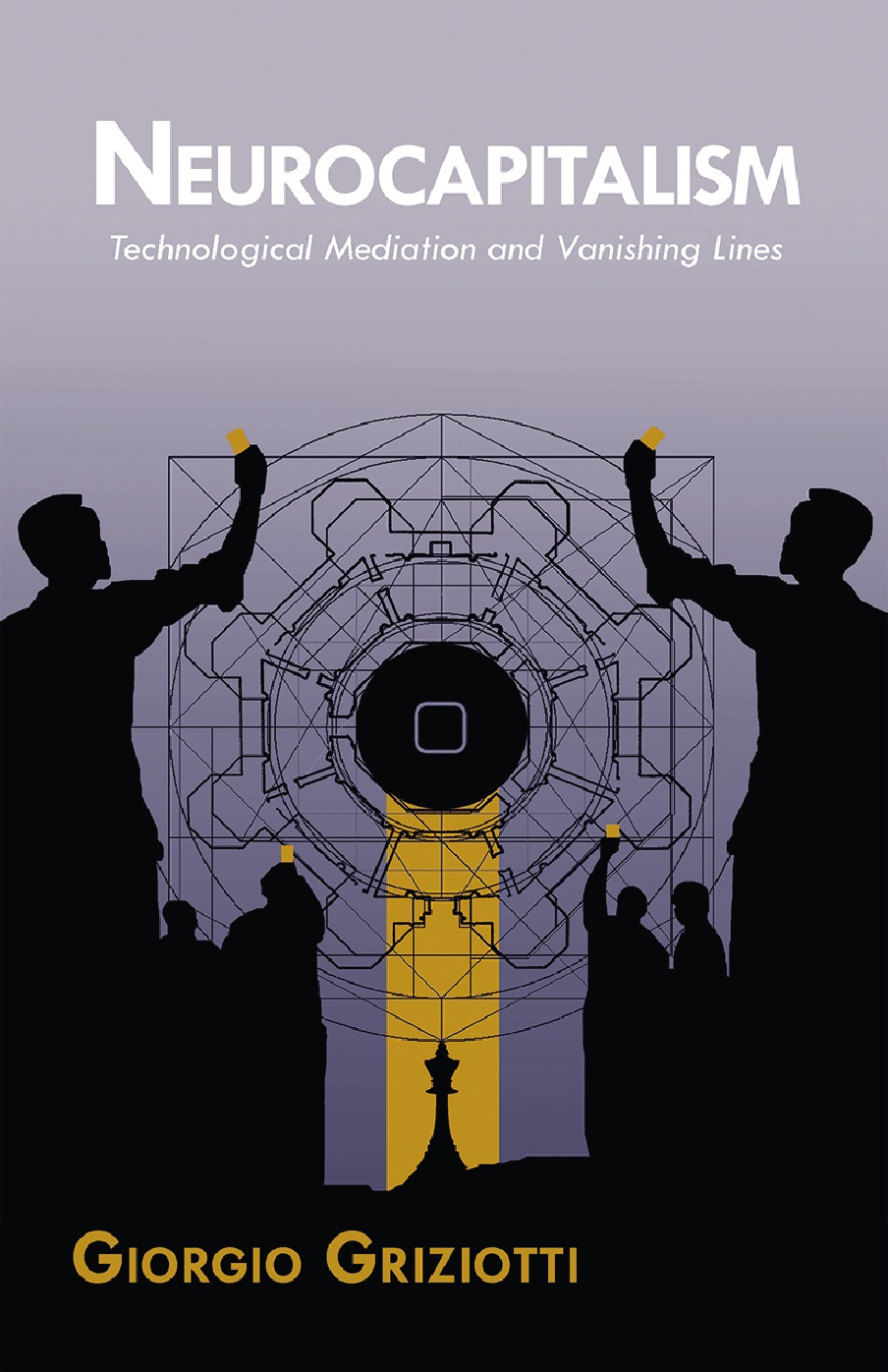South Atlantic Quarterly, 116(2): Autonomia in the Anthropocene (2017)
Filed under journal | Tags: · anthropocene, autonomy, capitalism, cognitive capitalism, commons, labour, marxism, multitude, subjectivity

“Despite Autonomia’s widespread influence on political action and post-Marxist scholarship, it has been surprisingly slow to address planetary change and environmental politics. With a focus on cognitive capitalism, many autonomist scholars have downplayed or fully ignored the ecological dimensions of post-Fordism—its foundations in extractive energy economies, its links to the accelerating financialization of nature under the banner of so-called green capitalism, its harnessing of nonhuman capacities, and its wildly uneven toxic geographies. This lack of engagement is regrettable given that, we propose, autonomist insights hold great promise for understanding both the transformed relation between capital and nonhuman natures in post-Fordism and the many political movements that have emerged in response. […]
It is no longer evident that key terms found in the autonomist lexicon—species being, the common, multitude, potentia—survive the challenge of the Anthropocene unchanged or that the production of subjectivity (a cornerstone of autonomist thought) can be understood solely in terms of language, habit, or gesture. It may therefore be necessary to think beyond the struggles of the factory floor, or those of the cognitariat today, to imagine and think from other sites of struggle, other forms of solidarity, and other experiments in “commoning.” These bring into play unfamiliar actors and unacknowledged geographies: sites of extraction and circuits of waste, indigenous communities and territories, rising seas and toxic landscapes that are materially present within the informationalized economies of global capitalism, but often invisible to those working within them. We might say, then, that the Anthropocene names autonomist Marxism’s unthought, an unthought that intrudes on its political imaginaries. What happens to autonomism if it begins to question the autonomy of the human? Or if it leaves its privileged sites in the global North?”
With contributions by Sara Nelson and Bruce Braun, Miriam Tola, Jason Read, Elizabeth R. Johnson, Elizabeth A. Povinelli, Matteo Pasquinelli, Karen Pinkus, Marco Armiero and Massimo De Angelis, Anja Kanngieser and Nicholas Beuret, and Isabelle Stengers.
Edited by Sara Nelson and Bruce Braun
Publisher Duke University Press, Apr 2017
ISSN 0038-2876
178 pages
Claire Fontaine: Human Strike Has Already Begun & Other Writings (2013)
Filed under book | Tags: · labour, protest, strike, work

“The term ‘human strike’ was forged to name a revolt against what is reactionary even – and above all – inside the revolt. It defines a type of strike that involves the whole of life and not only its professional side, that acknowledges exploitation in all the domains and not only at work. The human strike is a movement that could potentially contaminate anyone and that attacks the foundations of life in common; its subject isn’t the proletarian or the factory worker but the ‘whatever singularity’ that everyone is. This movement isn’t there to reveal the exceptionality or the superiority of one group or another, but to unmask the whateverness of everybody as the open secret that social classes hide.”
Publisher Mute, London, and Post-Media Lab, Leuphana University, Lüneburg, 2013
PML Books series
Anti-copyright
ISBN 9781906496883, 1906496889
66 pages
Giorgio Griziotti: Neurocapitalism: Technological Mediation and Vanishing Lines (2016–)
Filed under book | Tags: · automation, capitalism, commons, decentralization, labour, neurocapitalism, politics, production, technology, theory

“Analyzes the changing politics of technology, charting out possibilities for autonomous cooperation
Technological change is ridden with conflicts, bifurcations and unexpected developments. Neurocapitalism takes us on an extraordinarily original journey through the effects that cutting-edge technology has on cultural, anthropological, socio-economic and political dynamics. Today, neurocapitalism shapes the technological production of the commons, transforming them into tools for commercialization, automatic control, and crisis management.
But all is not lost: in highlighting the growing role of General Intellect’s autonomous and cooperative production through the development of the commons and alternative and antagonistic uses of new technologies, Giorgio Griziotti proposes new ideas for the organization of the multitudes of the new millennium.”
First published as Neurocapitalismo: Mediazioni tecnologiche e linee di fuga, Mimesis, 2016.
Foreword by Tiziana Terranova
Translated by Jason Francis McGimsey
Publisher Minor Compositions, Colchester, February 2019
Open access
ISBN 1570273421, 9781570273421
244 pages
PDF, PDF
Reviews and extracts in Italian, Spanish and French

